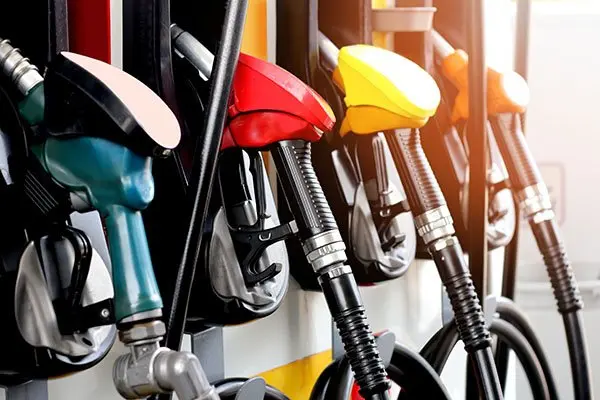Ghanaians bracing for another week of rising costs may soon find some relief at the pump. The Chamber of Oil Marketing Companies (COMAC) projects that petroleum prices are poised to decrease starting this Friday. This welcome shift is largely due to a confluence of factors, most notably a more stable foreign exchange rate and a significant drop in crude oil prices on the global market. According to Dr. Riverson Oppong, Chief Executive of COMAC, these economic indicators are paving the way for lower prices, offering a potential respite for consumers feeling the pinch of rising living costs. The anticipated drop in petroleum prices has been widely reported across Ghana. It remains to be seen how long these lowered prices will last.
Dr. Oppong emphasized that a stable forex rate, a weakening U.S. dollar, and plummeting crude oil prices are the key drivers behind this anticipated price reduction. The strength of the Ghana cedi in the currency exchange is a major factor at play.
Why Petroleum Prices in Ghana Are Expected to Fall
The anticipated decrease in petroleum prices is a multifaceted issue, heavily influenced by global financial trends and the performance of the Ghana cedi.
Dr. Oppong underscored the critical role of the foreign exchange rate in determining petroleum prices within Ghana. A stable exchange rate provides a foundation for price reductions at the pumps, creating a more predictable and favorable environment for both businesses and consumers.
Beyond forex, the weakening U.S. dollar and the significant decrease in crude oil prices on the global stage also play a pivotal role. These factors combine to create downward pressure on petroleum prices. Benchmark prices are also reflecting this trend.
“As we speak now, the benchmark prices are falling as well, and the U.S. is falling. That’s why you’ve seen petroleum product prices coming down. All the way from 15 per cent to 13 per cent today, on average,” – Dr. Riverson Oppong, COMAC CEO
COMAC’s analysis indicates a positive shift in the economic landscape, which should translate to lower petroleum prices for everyday Ghanaians.
COMAC’s Optimism and What It Means for Consumers
Dr. Oppong expressed considerable optimism that this downward trend will persist, potentially offering consumers sustained relief from high petroleum prices.
“Indeed, we expect this to continue. As far as these two components play their roles, plummeting down or taking a nosedive, I believe that ordinary Ghanaians or you and I will need to benefit from it in all angles,” – Dr. Riverson Oppong, COMAC CEO
Contributing to this optimistic outlook is the Ghana cedi’s recent performance, demonstrating significant strength by gaining 6.25% week-on-week against the dollar in the retail market. This places the cedi as the best-performing currency among fifteen Sub-Saharan African currencies, signaling a positive shift in Ghana’s economic stability.
What Does This Mean For You?
Lower petroleum prices have the potential to ripple through various sectors of the Ghanaian economy. Reduced transportation costs could lead to lower prices for goods and services, ultimately increasing consumer spending power and easing household budgets. The everyday Ghanaian may find some financial breathing room if these projections come to fruition.
“This change could be huge for the markets,” said Kwame Asare, an economic analyst based in Accra. “If petroleum prices fall, pressure on inflation decreases. That could allow the central bank to loosen monetary policy, encouraging investment and growth.”
While the future trajectory of petroleum prices remains subject to global economic forces, the anticipated drop offers a welcome prospect for Ghanaian consumers. The convergence of a stable forex rate and declining global crude oil prices presents an opportunity for reduced transportation costs and increased consumer spending. It is vital to closely monitor updates from COMAC and other industry experts to stay informed about these ever-evolving market conditions and prepare for potential shifts in the economic landscape.
Image Source: GHANAIANTIMES





















